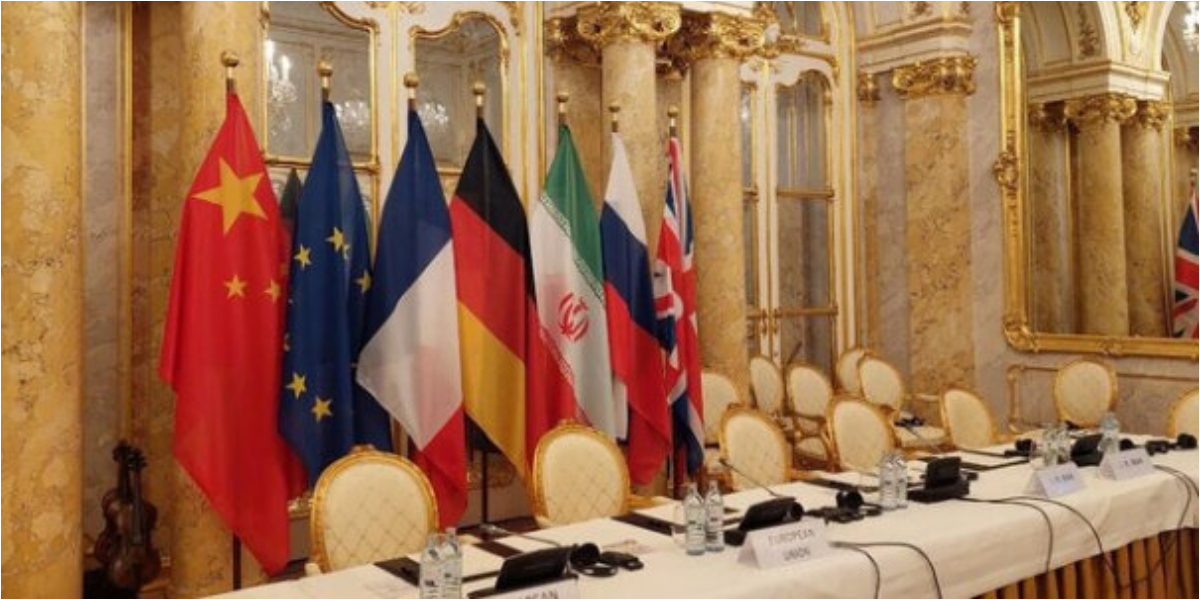TEHRAN, Dec. 28 (Xinhua) — Talks on the revival of a 2015 nuclear deal entered its eighth round on Monday amid a sense of urgency, though Iran accused the Western parties, mainly the United States, of using this atmosphere to place Tehran under pressure for reaching an agreement.
WORRIED WEST
Over the past few weeks, the United States and the E3 group of Britain, France and Germany, have been attempting to promote the idea that time is running out for restoring the agreement as Tehran’s nuclear program “has already made too much progress.
Last Tuesday, U.S. Special Envoy to Iran Robert Malley warned of “a period of escalating crisis” if diplomacy failed to restore the Iranian nuclear deal, officially known as the Joint Comprehensive Plan of Action (JCPOA).
Referring to Iran’s retaliatory measures, Malley said “If they continue at their current pace, we have some weeks left (to restore the deal) but not much more than that, at which point the conclusion will be there’s no deal to be revived.”
On the same day, U.S. Secretary of State Antony Blinken said Washington has a strong interest in reviving the JCPOA, warning, however, that if the Vienna talks fail, “then we are actively looking at alternatives and options.”
He blamed the former U.S. administration under Donald Trump for “the worst decisions made in American foreign policy in the last decade” by withdrawing from the accord in 2018.
The E3 group echoed similar concerns, saying that time is running out. Earlier, British Foreign Secretary Liz Truss said “this is the last chance for Iran to come to the negotiating table with a serious resolution to this issue, which has to be agreeing on the terms of the JCPOA.”
Iranian officials have, nevertheless, dismissed the West’s warnings and bid to set a deadline for the talks as part of a psychological war against the country.
Iranian Foreign Ministry Spokesman Saeed Khatibzadeh said on Monday that “these announcements of optimism and pessimism are part of a psychological operation, and it is quite clear that they are the design of the European and American sides to influence the negotiations.”
NEGOTIATION TACTIC
Analysts also dismissed the West’s threat as a negotiation tactic. Iran’s official news agency IRNA wrote in an analysis that by using the tactic, the West seeks to pressure Iran and extract more concessions.
The excessive demands with scopes beyond the JCPOA by the United States, which has been the violator of the deal, come as Iranian officials and negotiating team have frequently stressed and shown in practice that they will not back down on their requests, it added.
Likewise, a source close to Iran’s negotiation team in Vienna talks said that the country will not fall into the trap of “factitious deadlines” that could be set by the other parties to the JCPOA.
Quoted by IRNA on Sunday, the source said the Iranian team seeks to stage a “powerful and well-prepared” presence in the talks, and “would stay in the Austrian capital as long as it is needed to.”
Iran’s Tasnim News Agency wrote in general that threats by the West can be categorized as time-bound, military, and sanction warnings.
It added such threats and warnings are indicative of the West’s strategic bewilderment, saying the deadlines have undergone several changes and been extended.
PROMISING PERSPECTIVE
Despite all these threats and warnings, upbeat remarks were made by the engaged parties on the first day of the eighth round of the talks, rekindling hopes of an impending agreement.
On a more positive note, the parties resume the eighth round of negotiations during the Christmas and New Year holidays, and this in itself fully reflected the sense of urgency on all parties to resume negotiations, said Wang Qun, the Chinese envoy to the United Nations and other international organizations in Vienna.
Like most of the participants, China believes that the negotiations have achieved positive results, Wang noted.
Prior to the JCPOA Joint Commission meeting, Iran’s Foreign Minister Hossein Amir Abdollahian said the issues of guarantees and verification of sanctions removal are the main points of the new discussions, adding the talks will be based on a new, joint and acceptable document reached by the sides earlier this month.
In addition, asked whether he is optimistic about the result of talks at the end of the Joint Commission meeting on the first day, Iran’s chief negotiator Ali Bagheri Kani said that “if we were not (optimistic about the result), we would not have come to Vienna.”
Meanwhile, Mikhail Ulyanov, Russia’s permanent representative to international organizations in Vienna, said in a tweet that the new round of talks was businesslike and the participants held “result-oriented discussions.”
[embedpost slug=”news-analysis-egypts-new-transportation-projects-help-accelerate-development-attract-investments-experts/”]

















